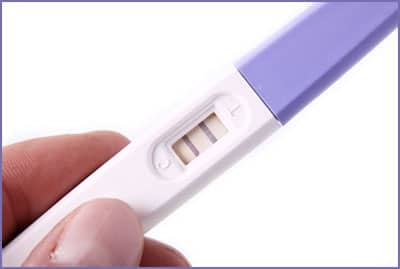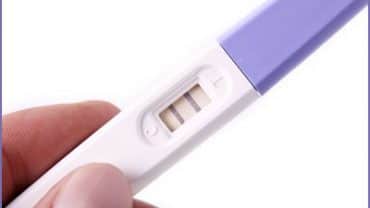 Most at home early pregnancy tests allow you to read the result as soon as 2-3 minutes after taking the test, but many have time limits- meaning not to read the result after a specified length of time. The accuracy of home pregnancy tests depends on how closely you follow the instructions. If you do a home pregnancy test four to seven days after your missed period, it will be positive 95 percent of the time (assuming you are pregnant).
Most at home early pregnancy tests allow you to read the result as soon as 2-3 minutes after taking the test, but many have time limits- meaning not to read the result after a specified length of time. The accuracy of home pregnancy tests depends on how closely you follow the instructions. If you do a home pregnancy test four to seven days after your missed period, it will be positive 95 percent of the time (assuming you are pregnant).
How an Early Pregnancy Test Works
About four days after conception, the fertilized egg begins to produce a hormone called human chorionic gonadotropin (or hCG for short). One of the first tasks of this hormone is to notify the ovaries that you are pregnant and no more ovulations are needed for a long time. The signal also directs the ovary to help retain the endometrium (the uterine lining) and prevent your menstrual period, which would expel the newly-attached embryo from your uterus.
Human chorionic gonadutropin (hCG) can be detected first in your blood and shortly thereafter in your urine. Most tests can tell you if you’re pregnant as early as the first day of your missed period (about 14 days after conception) or even earlier. The tests were created to detect the presence of hCG in your urine. If there is hCG detected in your urine, it reacts with the chemicals on the test strip to create a “+” sign or a second line in the result window (depending on what brand of test you use). Remember, whether the makers of the test claim you can take the test any time of the day, first- morning urine always contains the highest concentration of hCG.
The major drawback with home pregnancy tests is that when done in the early days of pregnancy, sometimes it will indicate you’re not pregnant, when in fact you are. This can occur because levels of hCG are low in early pregnancy and can go undetected. For this reason, test results that indicate you are not pregnant are more often wrong than test results that indicate you are pregnant.
Home pregnancy tests are not designed to take the place of a consultation with your doctor. They should be considered screening tests only. If your test result is negative, but your period is late and you have symptoms of pregnancy, consult your health care provider. If your result is positive, make an appointment with your doctor for confirmation and a complete prenatal check-up.
Blood pregnancy tests are very accurate and can detect the presence of hCG as early as one week after conception. They can also be helpful in determining how far along you are by measuring the exact amount of hCG in your blood, since the levels tend to double about every two days in early pregnancy.
